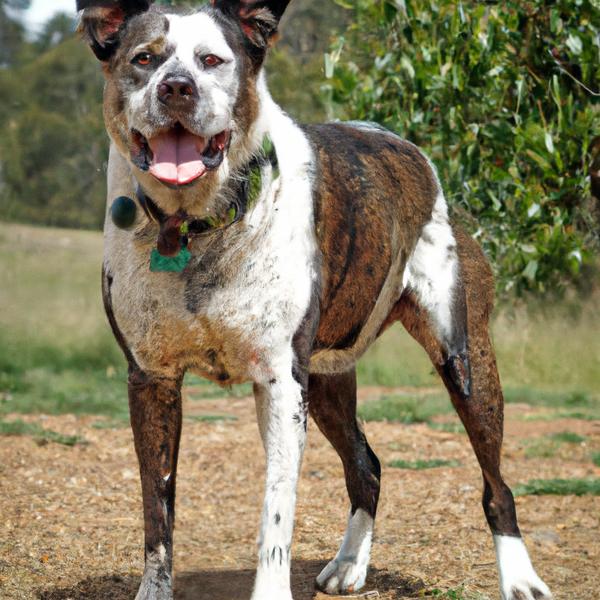Yorkshire Terrier vs. Australian Boxherd: Breed Differences and Similarities
Hypoallergenic
Are Yorkshire Terriers or Australian Boxherds hypoallergenic, or neither?
While no dogs are truly 100% hypoallergenic, Yorkshire Terriers are about as close as it gets, making them an ideal pet if you are an allergy sufferer.
Unfortunately, the Australian Boxherd is not hypoallergenic, making it not a good choice for a dog lover who suffers from pet allergies.
Temperament
What are the personalities of Yorkshire Terrier and Australian Boxherd dogs?
Alert
Energetic
Intelligent
Playful
Courageous
Independent
Loyal
Active
Playful
Loving
Energetic
Protective
Intelligent
Confident
Friendly
Affectionate
Loyal
Fearless
Good-natured
Brave
Bright
Shedding Level
Do Yorkshire Terriers shed more than Australian Boxherds, or which breed sheds more, Yorkshire Terriers or Australian Boxherds?
Yorkshire Terriers shed very little hair, making them a great choice for those who dislike excess hair in the house.
Australian Boxherds are moderate shedders, but regular brushing can reduce shedding and maintain coat health.
Watchdog Ability
Which dog breed makes a better watchdog, the Yorkshire Terrier or Australian Boxherd?
Yorkshire Terriers make excellent watchdogs - they're vocal and protective of their territory.
Avoid Australian Boxherds as watchdogs - they're not effective.
Ancestry
What are the origins of Yorkshire Terrier and Australian Boxherd breeds?
Waterside, Manchester, Paisley, Skye, Dandie Dinmont Terriers
Boxer, Australian Shepherd
Breed recognition
Which kennel clubs recognize/register Yorkshire Terrier and Australian Boxherd?
American Canine Registry
American Kennel Club
America's Pet Registry
Canadian Kennel Club
Dog Registry of America Inc.
Federation Cynologique Internationale
Kennel Club of Great Britain
North American Purebred Registry, Inc.
American Canine Association, Inc.
Australian National Kennel Council
Continental Kennel Club
National Kennel Club
New Zealand Kennel Club
United Kennel Club
DRA = Dog Registry of America, Inc.
Date of Birth
When were Yorkshire Terrier and Australian Boxherd breeds first developed?
1800s
Unknown
Litter Size
What is the usual litter size for Yorkshire Terrier and Australian Boxherd?
A Yorkshire Terrier can have a litter of 12-16 puppies on average. However, it's worth noting that the size of the litters can vary greatly. Factors that can influence litter size include the health of the mother, breeding history, and genetics.
An Australian Boxherd can have a litter of 6-9 puppies on average. However, it's worth noting that the size of the litters can vary greatly. Factors that can influence litter size include the health of the mother, breeding history, and genetics.
Adaptability
Yorkshire Terrier and Australian Boxherds are known for their adaptability and versatility. They are capable of adapting well to a wide range of lifestyle changes and living environments, making them great companions for families and individuals of all lifestyles.
Health Issues
Between Yorkshire Terrier and Australian Boxherd, which breed is more prone to health problems?
Yorkshire Terriers typically have low vet costs due to their good health, but it's important to monitor their health and seek vet care when necessary.
While the Australian Boxherd breed is generally healthy, occasional vet check-ups are still necessary to address any health concerns.
Major Concerns
What are the major health concerns for Yorkshire Terrier and Australian Boxherd breeds?
Portacaval Shunt
Tracheal Collapse
Legg-Calve-Perthes Disease
Cardiomyopathy
Hip Dysplasia
Subvalvular Aortic Stenosis
Collie Eye Anomaly
Minor Concerns
What minor health issues should be kept in mind when owning Yorkshire Terrier and Australian Boxherd?
Patellar Luxation
Cataracts
Epilepsy
Bloat
Nasal Solar Dermatitis
Pelger - Huet Syndrome
Iris Coloboma
Hypothyroidism
Occasional Tests
What occasional tests are recommended for Yorkshire Terrier and Australian Boxherd breeds?
Eye
Knee
Liver Ultrasound
X-Rays
Endoscopy
Eye
Blood
Blood Test
Heart
Skeletal
Skin Scraping
X-Rays
Energy
How do the energy levels of Yorkshire Terriers and Australian Boxherds compare?
Yorkshire Terriers thrive on an active lifestyle due to their high-energy nature.
Australian Boxherds' high energy levels make them unsuitable for a low-key dog, choose accordingly.
Social Needs
Yorkshire Terrier vs Australian Boxherd social needs comparison
Yorkshire Terrier and Australian Boxherd have very high social needs. These needs include regular mental and physical stimulation, a job or purpose, and companionship. They thrive in environments where they have a lot of interaction with humans and other dogs.
Exercise Needed
Yorkshire Terrier vs Australian Boxherd exercise need comparison.
Yorkshire Terriers require minimal physical activity for a healthy lifestyle.
Australian Boxherds need only a small amount of physical activity, ideal for busy or elderly people or those with limited space.
Sleeping Need
Which of the two sleeps the most/least: Yorkshire Terrier or Australian Boxherd?
Yorkshire Terrier and Australian Boxherd are active dogs that may not require as much sleep as other breeds. However, they still need enough sleep to stay healthy.
Tendency to Bark
Do Yorkshire Terriers or Australian Boxherds bark more/less frequently?
Yorkshire Terrier dogs bark and howl frequently and are not recommended for quiet homes.
Australian Boxherds are typically quiet and only bark when needed, such as to alert their owner or when in distress.
Mouthiness
Mouthiness Comparison: Yorkshire Terrier vs Australian Boxherd?
Roaming urge
Yorkshire Terrier vs Labrador: Running away tendency?
Prey Drive
Yorkshire Terrier or Australian Boxherd - which breed has a higher level of prey drive?
Past times
What are some enjoyable activities and ways to keep Yorkshire Terrier and Australian Boxherd entertained?
Walk, Play, Walking, Belly rubs, Toys, Fetch, Being held, Napping, People watching, Jump, Run, Lounge, Sniffing, Petting, Resting, Belly action, Sleeping, Running, Eating Snacks, Brushing, Cuddling, Attention, Pets, Barking, Exploring, Marking, Licking, Cuddles, Walkig, Play keep away
Tug-of-war, Walk, Run, Hide & Seek, Frisbee, Trick, Cuddles, Nap, Swim, Running, Play, Play keep away, Fetch, Training, Walks, Toys
Tolerance of being left alone
Grooming
Which breed is easier to maintain in terms of grooming, Yorkshire Terriers or Australian Boxherds?
Yorkshire Terriers have high grooming needs, requiring regular trims and professional grooming assistance to keep their coat healthy.
The Australian Boxherd has low grooming needs and is easy to maintain.
Intelligence
Comparing Intelligence: Yorkshire Terriers vs Australian Boxherds
Yorkshire Terrier is a very intelligent and trainable breed.
Australian Boxherds are average in obedience intelligence but have a high IQ and may cause trouble if left unsupervised.
Sensitivity Level
How do Yorkshire Terrier and Australian Boxherd compare in sensitivity?
These dog breeds are particularly attuned to its environment and the emotions of those around it. Yorkshire Terrier and Australian Boxherd can be easily overwhelmed by loud noises, new environments, unfamiliar people, or animals. This dog breed is best suited for individuals or families who are patient, gentle, and understanding of its sensitive nature. It may also benefit from a calm and stable home environment, with a consistent routine and plenty of positive reinforcement training.
Affection Dependance
Which is the more affectionate dog breed: Yorkshire Terrier vs Australian Boxherd?
Apartment Friendly
Which breed is more apartment-friendly: Yorkshire Terrier or Australian Boxherd?
Yorkshire Terriers make excellent apartment dogs, being fairly active indoors and not requiring a yard.
The Australian Boxherd is a great apartment dog, thriving with sufficient exercise and time outside as part of their daily routine.
Child Friendly
Do Yorkshire Terriers or Australian Boxherds have a friendlier temperament towards children?
Yorkshire Terriers are not suitable for children.
Australian Boxherds make excellent family pets for kids due to their gentle, protective nature and calm temperament.
Senior-friendly
Which dog is more suitable as a pet for the elderly - Yorkshire Terrier or Australian Boxherd?
Cat Friendly
Do Yorkshire Terrier or Australian Boxherd breeds have a better compatibility with cats?
Yorkshire Terriers are good with cats, but early training is needed to prevent chasing behavior.
Australian Boxherds are average in their friendliness toward cats and tend to do well with them, especially if raised together.
Dog Friendly
Which breed is more sociable with other dogs: Yorkshire Terrier or Australian Boxherd?
Yorkshire Terriers are less friendly towards other dogs, but can improve with socialization.
Australian Boxherds are average in their friendliness towards other dogs, and socialization can help.
Pet friendly
How do Yorkshire Terrier or Australian Boxherd dogs interact with other pets?
Stranger Friendly
Which breed is more friendly with strangers: Yorkshire Terrier or Australian Boxherd?
Yorkshire Terrier and Australian Boxherd are average friendly around strangers. They can be wary around strangers and a little standoffish, so early socialization is key to ensure they are comfortable around new people.
Playfulness
Which breed is more playful between Yorkshire Terrier and Australian Boxherd?
Yorkshire Terriers have an average level of playfulness, enjoying playtime like most dogs but not excessively so.
Australian Boxherds are very playful, so adopting an older one might be a better option for a more relaxed experience.
Trainability
How do the trainability levels of Yorkshire Terriers and Australian Boxherds compare?
Yorkshire Terriers are usually easy to train but require consistency to fully obey commands.
Australian Boxherds are popular for their ease of training and quick learning ability.
Compare Yorkshire Terrier with other breeds
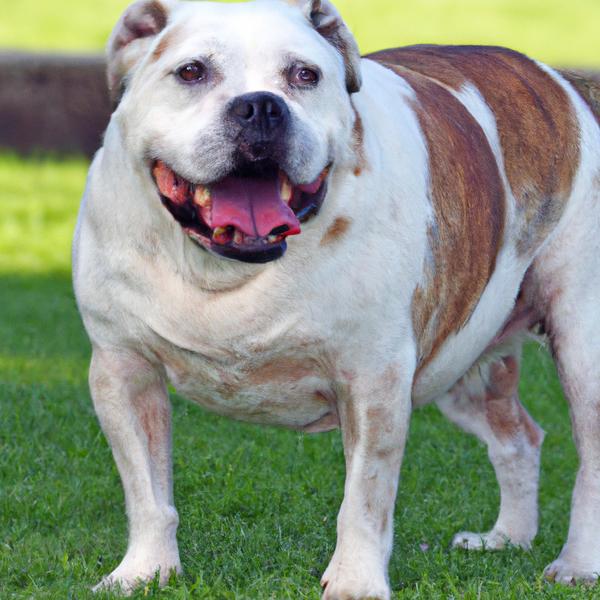
Olde Double Bully
Yorkshire Terrier vs Olde Double Bully

Bostillon
Yorkshire Terrier vs Bostillon
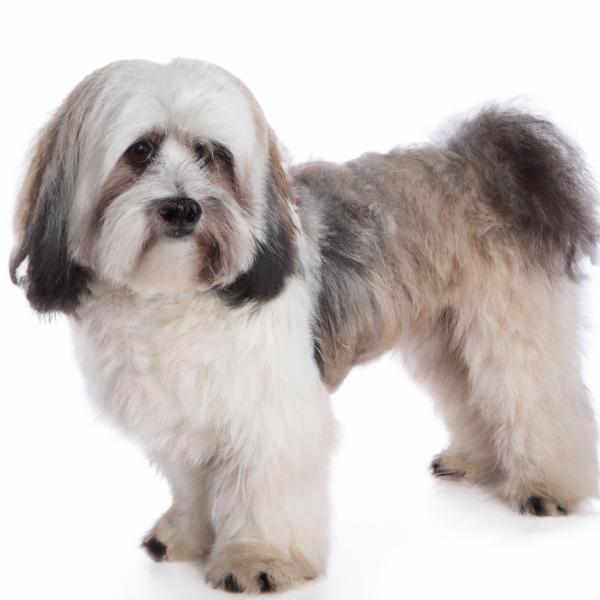
Havanese
Yorkshire Terrier vs Havanese

Chesa-Poo
Yorkshire Terrier vs Chesa-Poo
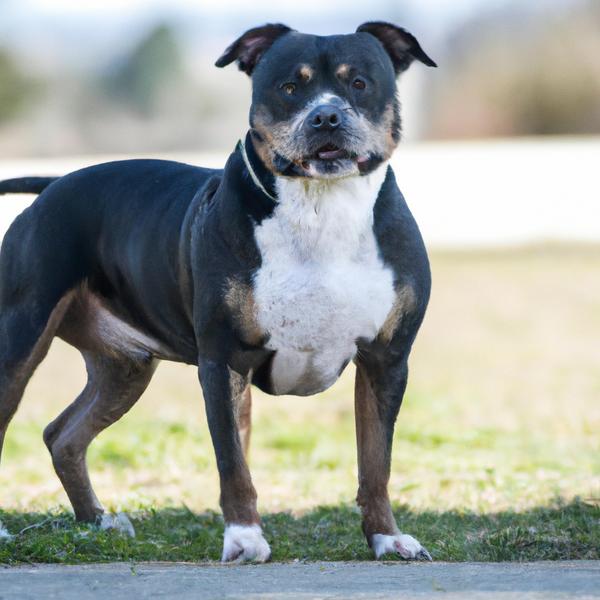
American Bullweiler
Yorkshire Terrier vs American Bullweiler
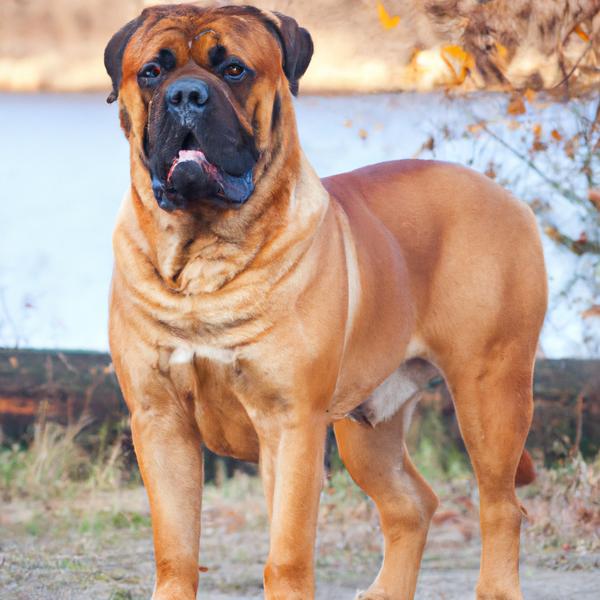
Bullmastiff
Yorkshire Terrier vs Bullmastiff
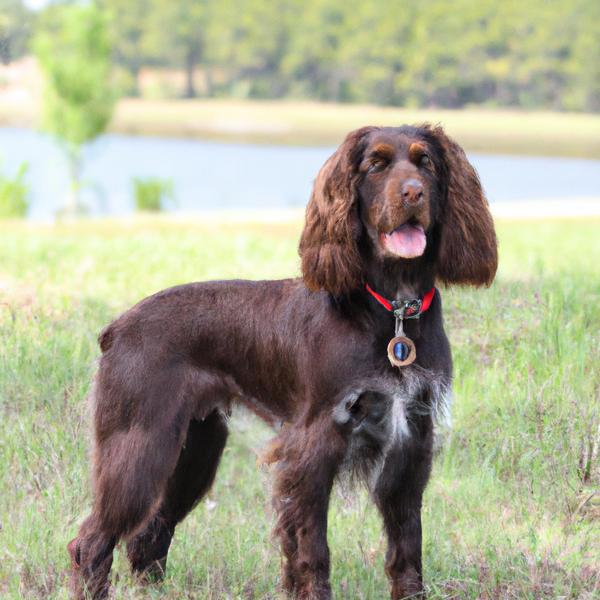
Boykin Spaniel
Yorkshire Terrier vs Boykin Spaniel
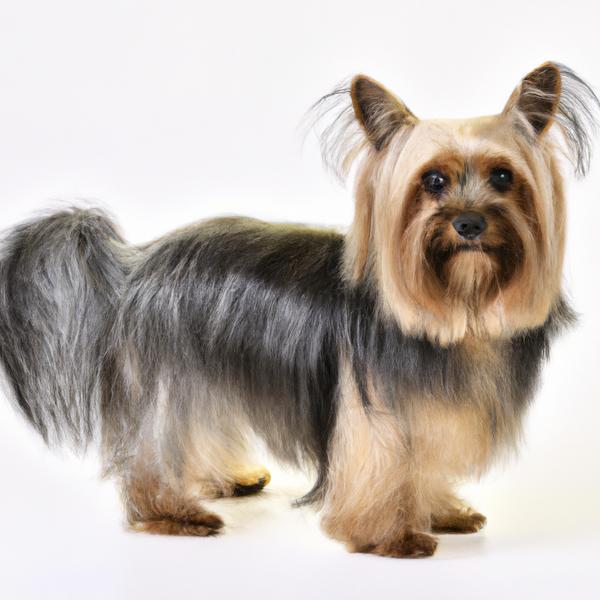
Yorkillon
Yorkshire Terrier vs Yorkillon
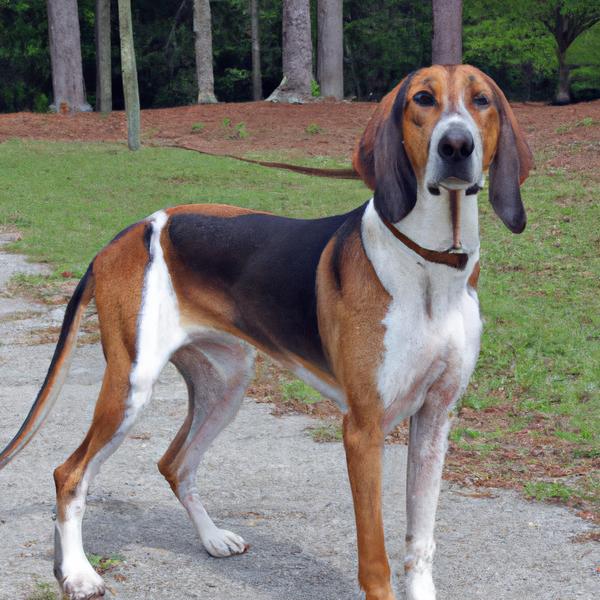
Treeing Walker Coonhound
Yorkshire Terrier vs Treeing Walker Coonhound

Azawakh
Yorkshire Terrier vs Azawakh
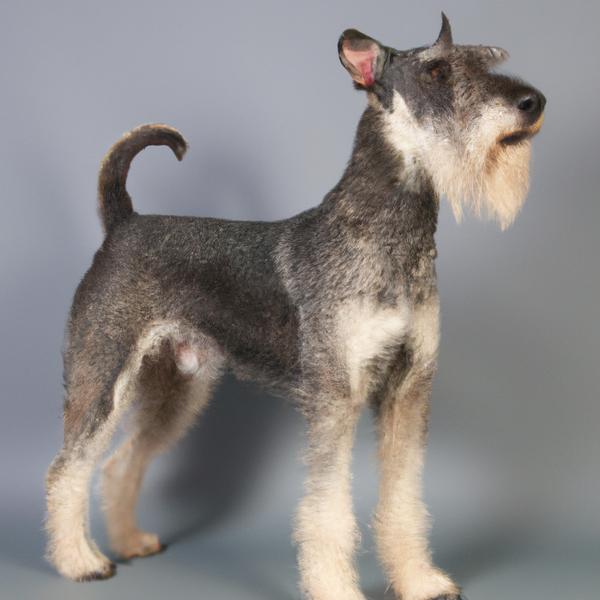
Standard Ratzer
Yorkshire Terrier vs Standard Ratzer

Siberian Husky
Yorkshire Terrier vs Siberian Husky

